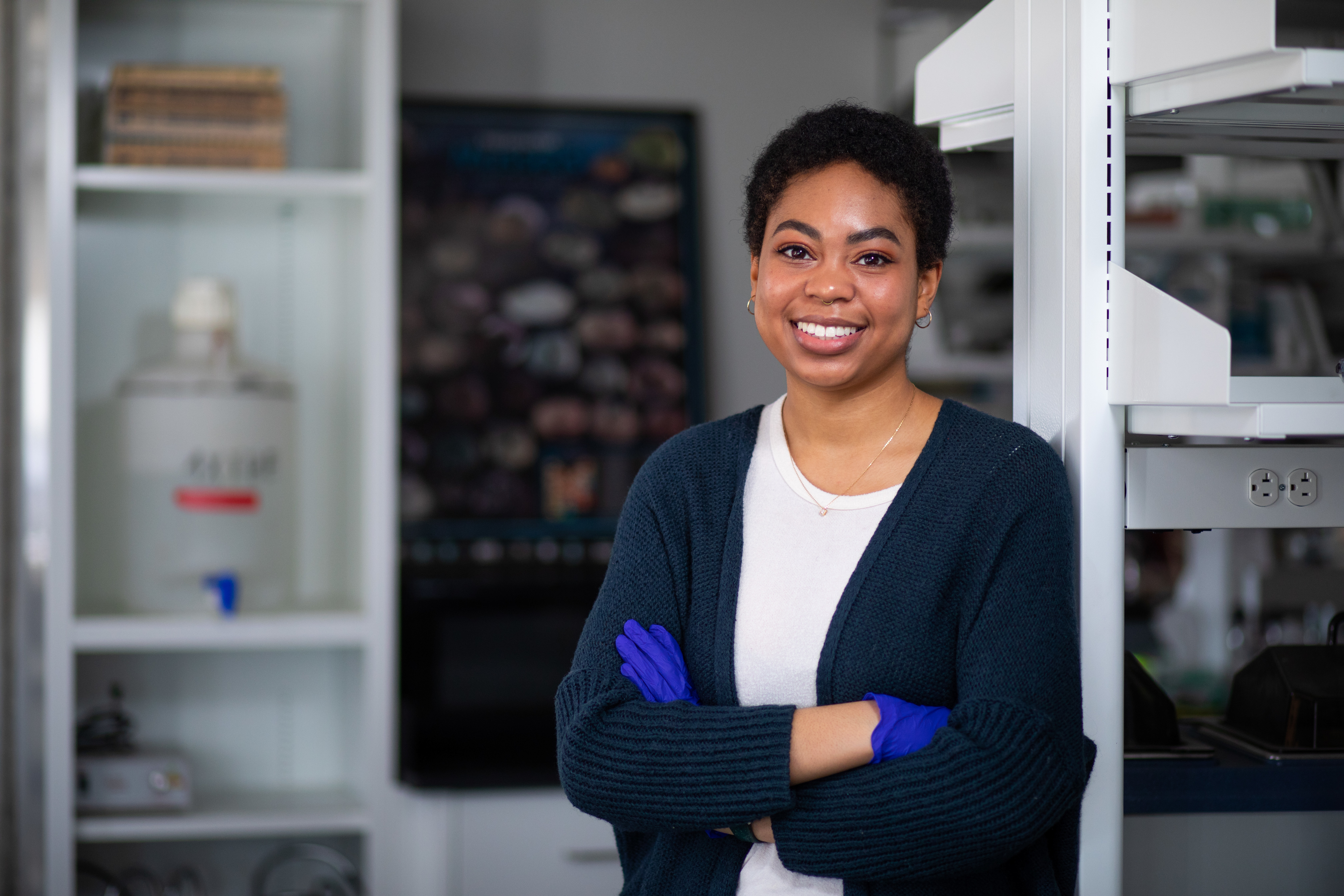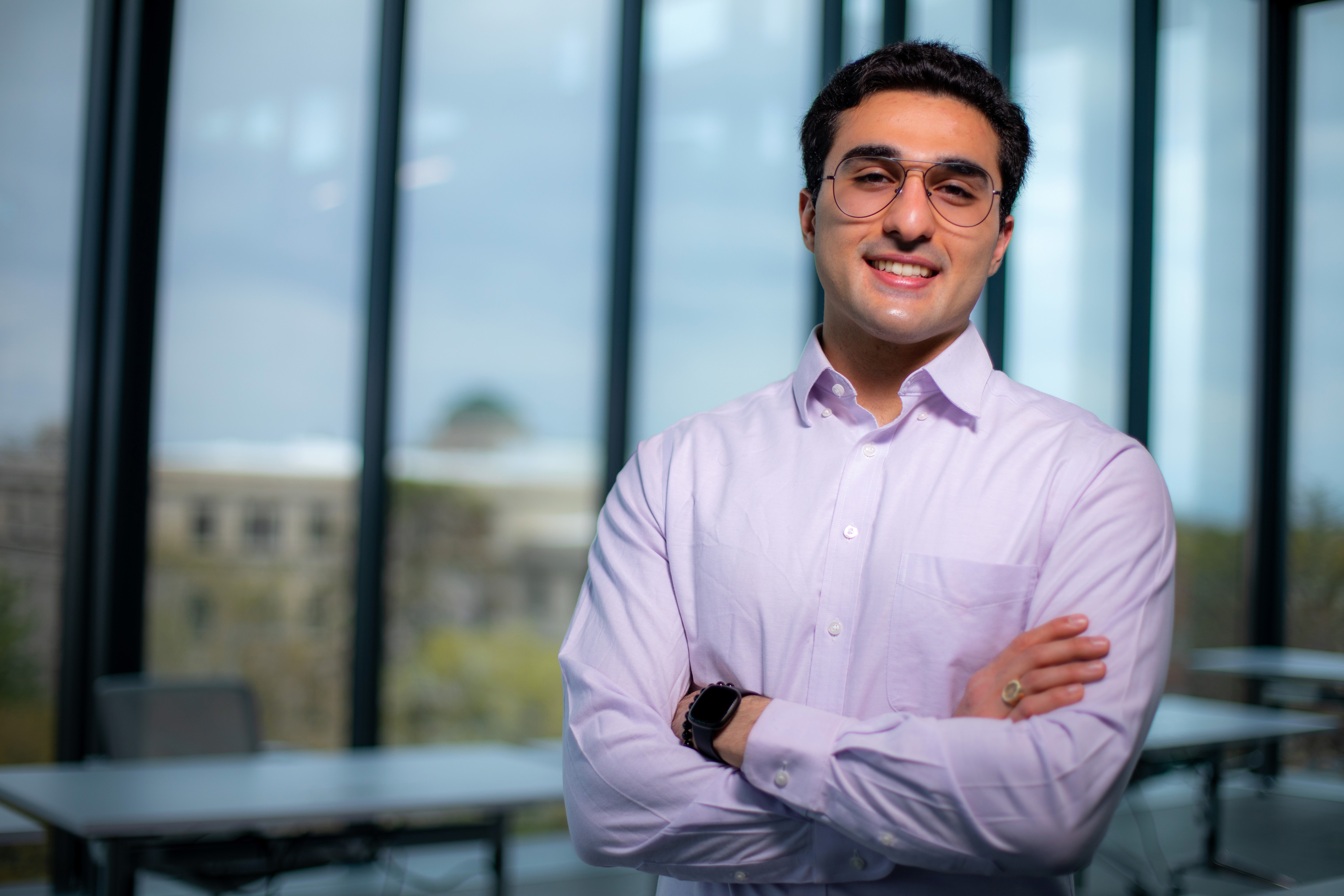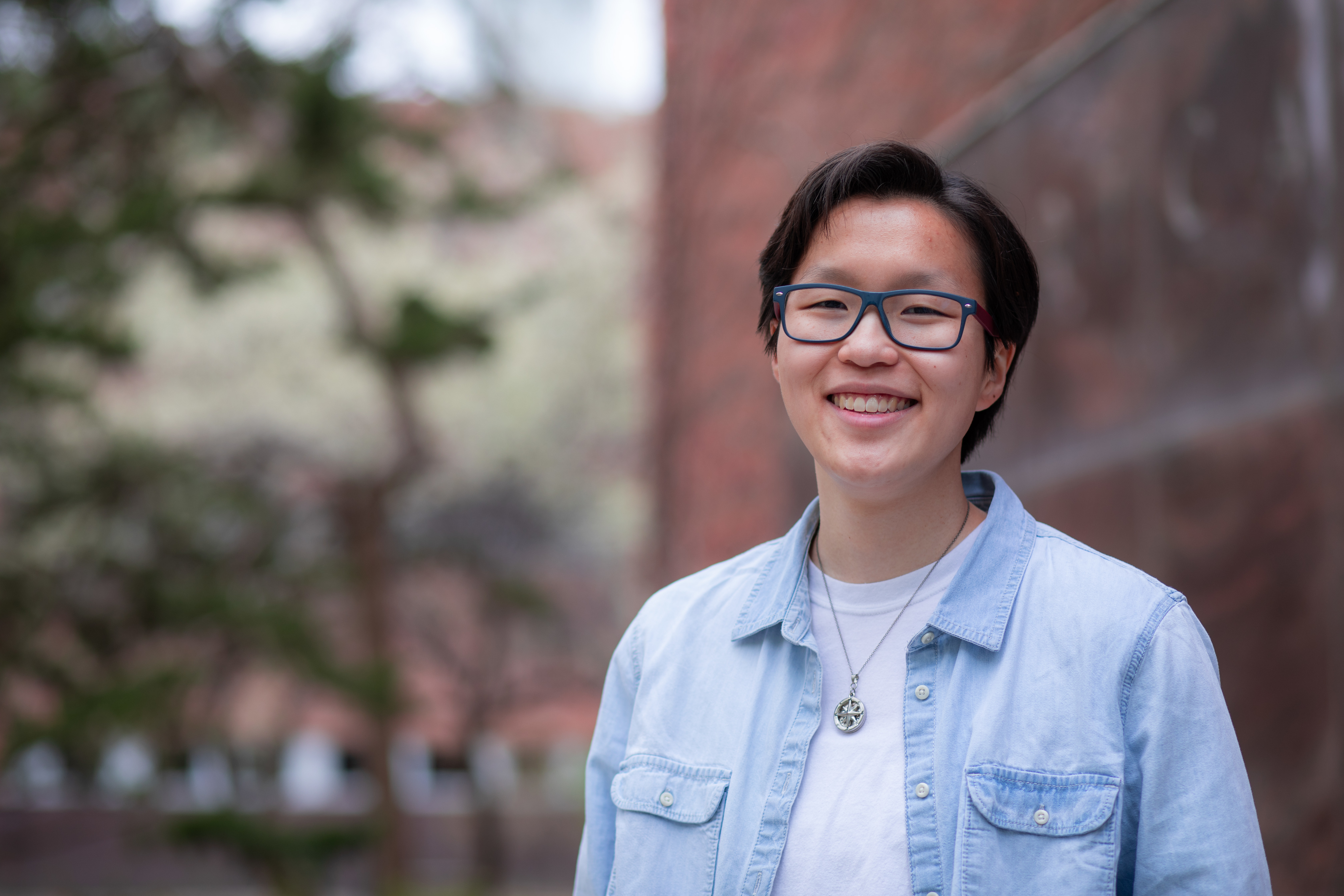
Graduating senior Toni Sleugh in a Bessey lab where she conducted much of her research as an undergrad. Photo by Christopher Gannon. Larger image. All photos and videos were shot following physical distancing guidelines, and with staff wearing face coverings.
AMES, Iowa — Iowa State University may not be the first university you think of when it comes to marine biology.
That didn’t stop Toni Sleugh from turning her Iowa State experience into exactly what she wanted in terms of marine biology, environmental conservation and management. Sleugh will graduate this weekend with a bachelor’s degree in biology and environmental studies.
Sleugh’s interest in the field started young. Her father is a scientist and her family encouraged their children to dive deep into math and science. Sleugh loved animals and nature documentaries.
The summer after her freshman year, Sleugh received an National Science Foundation Research Experiences for Undergraduates (NSF REU) Fellowship to work on a computational biology project at the Woods Hole Oceanographic Institution in Massachusetts. She studied the swimming behavior of baby squid to see how they were impacted by ocean acidification and warming.
“That’s what really got me hooked and seeing marine biology as a career option,” she said. “I was already concerned about environmental changes, but that’s what got me into it as a research question and potentially a career research question as well.”
While her family moved around during Sleugh’s childhood – from Ames to Kentucky back to Waukee to California to Indiana – the Cyclone spirit runs deep. Both of her parents graduated from Iowa State, her father in crop physiology and her mother in animal science.
“Iowa State is really home for me,” she said.
Building community
After high school, Sleugh participated in the ISU Office of Multicultural Student Affairs’ Academic Program for Excellence (APEX) program, which gives incoming freshmen an opportunity to take classes and live on campus during the summer to aid in the transition to college life.
“I feel like that was the start of a lot of my success at Iowa State,” she said. “I was introduced to faculty and programs that were helpful along the way. The Office of Multicultural Student Affairs has been so supportive, helping me find resources, getting me connected to a job on campus and giving me all of these opportunities that I wouldn’t have otherwise been aware of.”
Sleugh wanted to give back to the community that supported her, so she helped to rebrand the Multicultural Student Leadership Council, with an emphasis on connecting incoming students to multicultural organizations.
“My experience as a Black woman in STEM is that there’s not always as much diversity as there should be,” she said. “Something I’ve been really passionate about is making sure spaces are welcoming and inclusive to people of color and people of all marginalized identities. One really big way I’ve been involved in that is community-building.
“Making those connections and encouraging people to build those support systems is really important for retention, which is then important for diverse workplaces in the future.”
Making a name in marine biology
Sleugh started the biology program knowing that its scope was broad and that she did not want to pursue medical or veterinary schools. She found research opportunities with aquatics faculty who shared her interests, however, leading to research of freshwater turtles in the ISU Janzen Lab of Ecological and Evolutionary Herpetology, freshwater mussel conservation in the ISU Roe Lab, and the impacts of ocean acidification on marine arthropods at the NOAA Northeast Fisheries Science Center.
After graduating from Iowa State, Sleugh will begin a Ph.D. in marine biology at the Scripps Institution of Oceanography at the University of California, San Diego. She will work in a quantitative ecology lab focusing on conservation and fisheries.
Her career goal is to work in conservation and management, applying what she has learned through policy at the federal and state levels.
“It’s our generation’s biggest issue,” she said. “With climate change and pollution, we’re seeing devastating impacts not just for us, but for other species as well who can’t advocate for themselves. I’m really encouraged by all of the people I see who are just as passionate and doing all this great work to support conservation, and I just want to be a part of that.”

